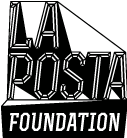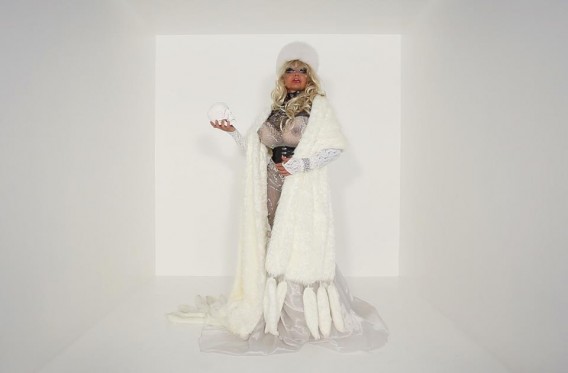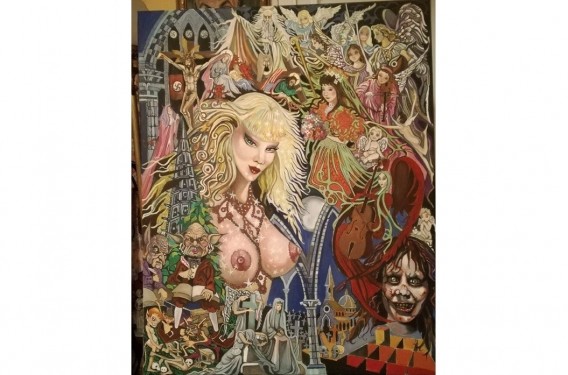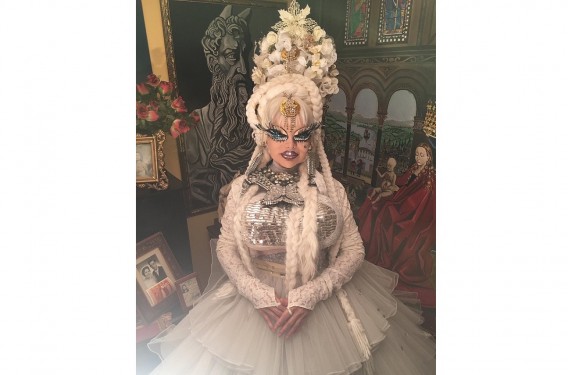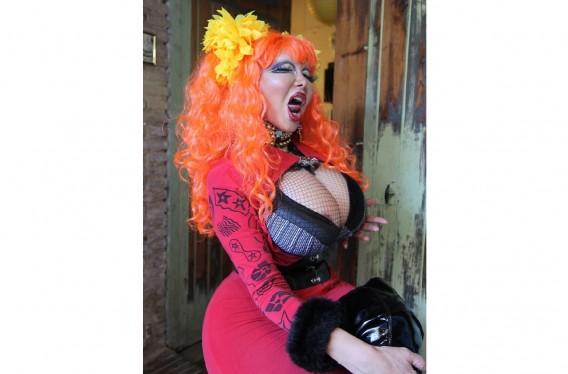Manuela Trasobares is a painter, sculptor, fallera artist, opera singer and the first transgender councilor in Spanish politics. The artist has a prolific and varied artistic work, framed in the most transgressive contemporary art, which would well deserve a retrospective. All of her work has an artistic background committed to the fight for social justice, equality and the Republic. This work shares with the first book of her Will to Power a combative attitude mixed with the truth and reality of the artist herself.
Will to Power is the first book by Manuela Trasobares [Editorial Hidroavión, 2022]. The title and consequently the work itself are based on the Nietzschean concept of the will to power. The work is made up of two parts, on the one hand, a part where the artist reviews different historical events, focusing especially on revolutionary movements and reinterpreting history with a deconstructive methodology, and on the other, an autobiographical part that covers the years 1962 to 1978. Both parties are united by the “trasobarista” perspective of the author herself in which the manipulation that is hidden behind the will to power is described. In the same way, the artist raises a series of existentialist reflections and the need to answer a series of questions related to society and human life.
The analysis of the concept of power starts from Nietzsche and his concept of the will to power. Behind this concept hides an uncertain and doubtful reality in which power transmits an interested reality that makes us perceive and conceive limitations, paradigms, laws, colors, etc. In short, everything that determines reality. In this way, the will to power manages to script and project stories according to its own interest.
In the words of the artist herself,
“Everything is totally related, since both my plastic work and my literary work is a deep historical-philosophical analysis of how power manipulates reality to its own free interest, causing the people to be totally deceived by living completely false and artificial realities. Concepts like democracy, liberty, fraternity and legality do not exist. In a truly just world, basic needs such as food, housing, justice or education would not have to be a tremendous business. She also analyzed that all the revolutions that have taken place throughout our history, like the French one, have been a tremendous fraud. Humanity does not evolve. The same ones are always in charge and the people continue to be idiotic.”
Manuela Trasobares’s creations have to do with the pop and minimal style of Jeff Koons’ sculptures, the color and plasticity of Niki De Saint Phalle, the sculptural hyperrealism of John de Andrea or the sculptural provocation of Maurizio Cattelan. Among her main influences is the surrealism of Dalí or the art of Walt Disney.
In each of her works, the position of the character represented within the recreated theme is highlighted, in a setting where intellectual rigor, realism, the conceptual or the avant-garde acquire a leading role. All these works have a gloomy baroque style of strange sweetness.
Next Friday, January 13, the colloquium “In the abyss of my mind” will be presented at Fundación La Posta. The colloquium is made up of two blocks. In the first of them, the audiovisual documentary “In the abyss of my mind” will be reproduced, in which the pictorial and sculptural artistic work that the artist treasures in her house in Geldo (Castellón) appears. Subsequently, the colloquium itself will take place, in which the most relevant aspects of the book Voluntad de Poder will be discussed by the artist herself. The colloquium is moderated by Alejandro Chust, assistant director of La Posta Foundation.

